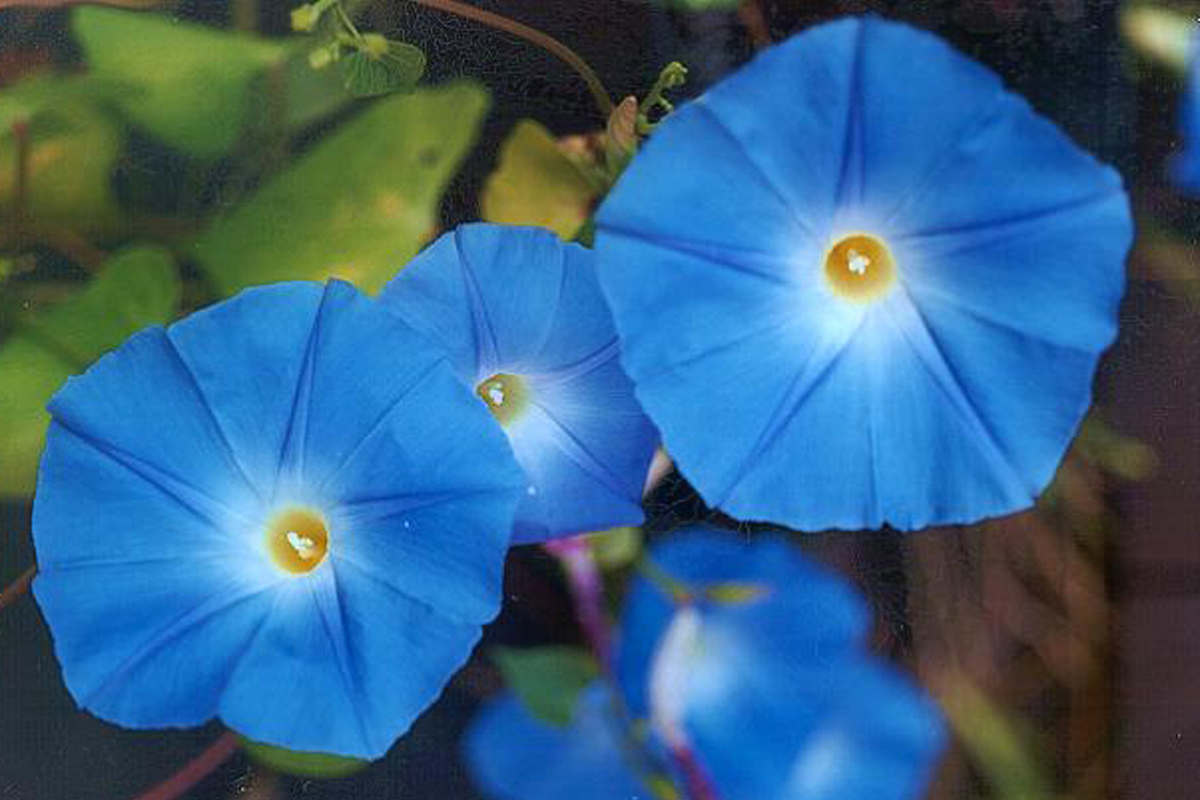You can’t plant, lest you plant: the list of prohibited plants has been updated
[ad_1]

Summer is just around the corner – it’s time to prepare for the opening of the summer cottage season. Many gardeners are now purchasing seeds for flower seedlings. But before planning new plantings, MK experts advise thoroughly studying a botany textbook and carefully reading the labels on seed bags. According to the chairman of the Union of Summer Residents of the Moscow Region, Nikita Chaplin, one of these dangerous seven-flowered flowers, for which they can even be sent to prison, is the common loach or, scientifically, morning glory tricolor. On February 15, 2024, the Russian government added this unpretentious flower to the list of plants prohibited for cultivation; now it is equivalent to the production of drugs.
“It’s all about the hallucinogenic substances contained in the seeds of the plant. In terms of their effect on the human psyche, they can be equated to the hardest drugs. Therefore, if a bag of 3 grams of seeds is found in your home, you can receive a criminal sentence of up to 2 years. The same severe punishment threatens those who have a large loach plantation on their property – 100 or more plants; for several copies – up to 10 vines – a fine of 5 thousand rubles is imposed. or arrest for 15 days,” explains lawyer Natalya Markityan.
The most unpleasant thing in this story is that the law under which you can be fined or arrested was adopted a long time ago, but the practice of its application is still not clearly regulated.
“Responsibility for the presence on the site of plants containing narcotic or psychotropic substances is prescribed in Article 231 of the Criminal Code of the Russian Federation. The list of such plants is small, and most of them are heat-loving and do not grow in the open air in our climate. For example, a blue lotus, a coca bush or a cactus containing mescaline can only be found in a greenhouse. But the loaches in summer cottages can be mowed down, fortunately, most of them are completely harmless. Only morning glory tricolor was banned, which, by the way, is the most inconspicuous of its relatives. But the trouble is that this plant is a weed. You don’t even need to plant him; if he gets into the area, you won’t be able to get him out later. Law enforcement officials say nothing about this: will they punish summer residents who received prohibited plants from their neighbors? Another question: morning glory is an annual plant, but its seeds overwinter well in our conditions and sprout the next year, without any effort from summer residents, will they be fined for them too if they are found on the site,” argues biologist Sergei Matyushin.
At the very least, he advises to be extremely careful when purchasing seeds, so that unscrupulous sellers do not pass off a dangerous weed as another variety of ornamental loach.
“There are a huge number of different varieties of morning glory, it is a very popular decorative vine among our summer residents, and most importantly, it is completely unpretentious, most often on fences, around gazebos and pergolas you can find the brightest variety – purple morning glory, which, by the way, is absolutely harmless. And the morning glory tricolor (ipomoea tricolor) has pale blue flowers with a white and golden-yellow center – in principle, it is difficult to confuse them. Honestly, I don’t know why everyone is so excited about these flowers. How many dangerous plants live in our dacha – aconite alone is worth it, both children and animals can be poisoned by it. To be honest, I have a hard time imagining a situation where local police officers, together with the chairman of the SNT, would go to gardeners’ plots and look for prohibited plants. It seems to me that they already have enough worries. At least I’ve never heard of summer residents being raided and their plots being searched for prohibited plants, although there are plenty of them there. I’m not even talking about forbidden mushrooms; they can be found on any compost heap,” says the expert.
However, lawyers still do not advise neglecting precautions and ignoring the law, ignorance of which, as we know, does not exempt from punishment.
“Many summer residents think exactly this way: that no inspectors will be allowed into their plots, which means that no one will know what is growing there. But I had to deal with cases when neighbors quarreled, and one wrote a denunciation against the other. The local police officer came to check and found several bushes of “sleeping poppy”. My clients did not know that this particular variety of poppy was prohibited for cultivation, but nevertheless they paid a fine. It’s better not to let things get to that point,” the lawyer warns.
Help “MK”. Which plants are prohibited: Banisteriopsis caapi, blue lotus, mushrooms of any kind containing psilocybin or psilocin, diplopteris cabrerana, iboga, morning glory tricolor, cactus containing mescaline, khat, coca bush, hemp, soporific poppy, mimosa hostilis, mitragyna beautifula, green psychotria, Hawaiian rose, divination sage, ephedra.
Moreover, this official list of plants prohibited for cultivation is regularly updated.
[ad_2]
Source link








